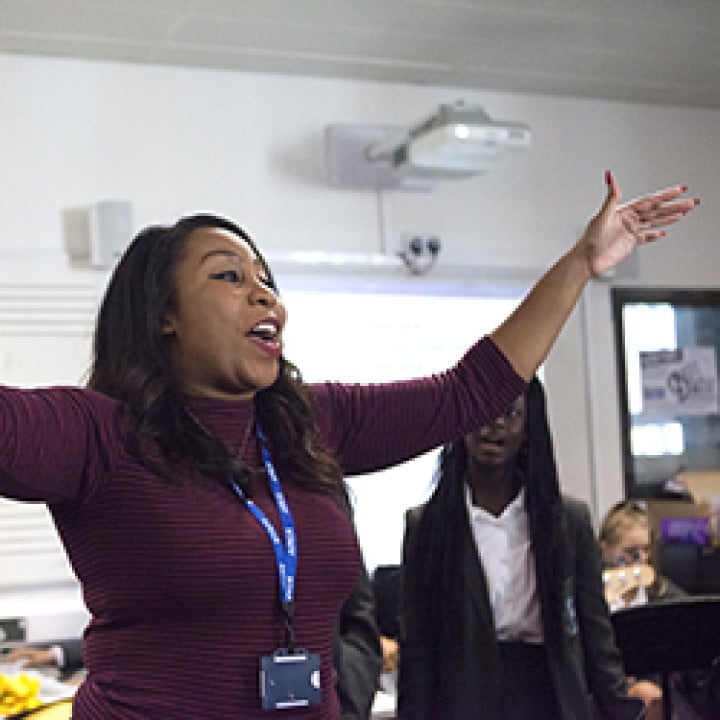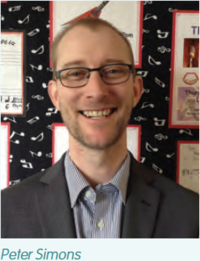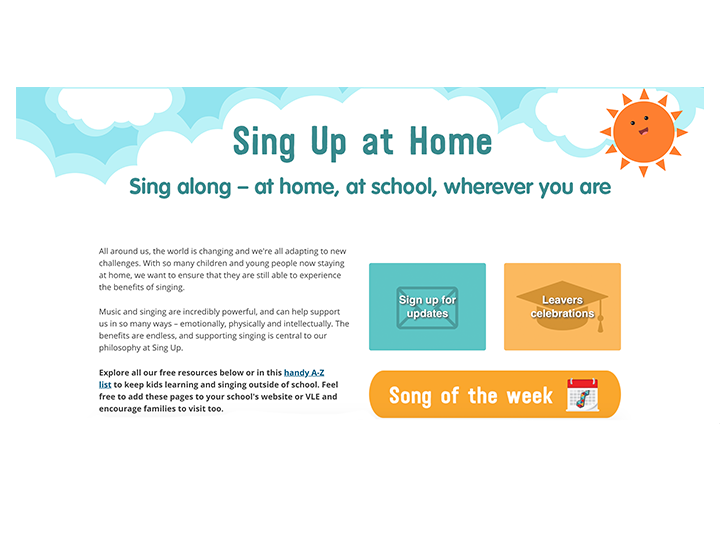
We have spoken to some of our long-term Members to find out how they successfully maintain singing in their schools.
Do lots of singing
Through choirs, assemblies, lessons, productions, concerts and more, singing helps to build confidence, self-esteem and team spirit. Our Members tell us that coming together regularly to sing is important for sustaining momentum. Peter Simons from Thornhill Junior & Infant School says, ‘Everyone has a 45-minute singing session a week.’ Similarly, Helen Bradshaw from Hotham Primary says, ‘We have singing assemblies every week, which also include singing and dancing.’
Get everyone involved
Our Members report that singing has a more powerful impact when everyone is involved. Helen started a community choir at Hotham, for parents, staff and children. By involving the local community, singing becomes a widespread enterprise that more people want to be a part of. Members say getting colleagues involved is crucial to encouraging singing across the school. Helen suggests ways to engage fellow staff: ‘Give them cross-curricular suggestions, deliver singing insets and help them with access to the Sing Up resources.’ Peter says, ‘Songs can be used in many lessons. Like jingles, songs help the children memorise information.’ Teachers at Thornhill use songs for topics, phonics and counting. Helen also notices how many lower school teachers tend to use singing at ‘transition points’ in the school day. Out of the classroom, singing even reaches the playground at Hotham where they have singing leaders for playground songs. Supporting your colleagues helps to make singing as accessible as possible to non-music specialists and builds their confidence in using singing as a tool. As Helen says, ‘You should never say you can’t join in.’
 Goals and performance opportunities
Goals and performance opportunities
Setting goals and providing regular performance opportunities helps give direction and purpose to singing whilst giving children something to get excited about. Helen recommends: ‘Promote singing by having concerts and competitions. We have used the Wandsworth Music Hub Singing Strategy Programmes to enhance our performance opportunities. Music Hubs are useful contacts which can provide all sorts of opportunities.’
Repertoire is the key
Peter highlights the importance of repertoire: ‘You must get the kids on board and excited. Getting the song choice right and at the right pitch is key.’ Helen agrees: ‘The choice of repertoire is absolutely crucial and must be well-matched to your performers.’  Both suggest researching your repertoire and ensuring the songs are relevant and up to date in order to maintain engagement. As a Sing Up Awards School, Thornhill Junior & Infant School have been put to the test on several occasions. Peter’s best practical advice for improvement is to ‘be brave... put simple harmonies in.’ And don’t be afraid to challenge your performers by giving them solos. ‘The more they do it, the better they will be,’ Peter adds.
Both suggest researching your repertoire and ensuring the songs are relevant and up to date in order to maintain engagement. As a Sing Up Awards School, Thornhill Junior & Infant School have been put to the test on several occasions. Peter’s best practical advice for improvement is to ‘be brave... put simple harmonies in.’ And don’t be afraid to challenge your performers by giving them solos. ‘The more they do it, the better they will be,’ Peter adds.
The best way to keep singing is to do lots of it. Singing is an extremely versatile tool that can be used in many settings for a multitude of purposes and it’s inclusive so everyone can join in. The more people sing, the more embedded it will become in school life. As Helen says, ‘Model the dream. If you love singing, others will love it too.’
To hear more advice from Sing Up Members about how they keep singing, click here.
Sing Up Membership provides the complete singing package
If you're feeling inspired, find out what's on offer with a year's access to all of Sing Up for you and your school.



